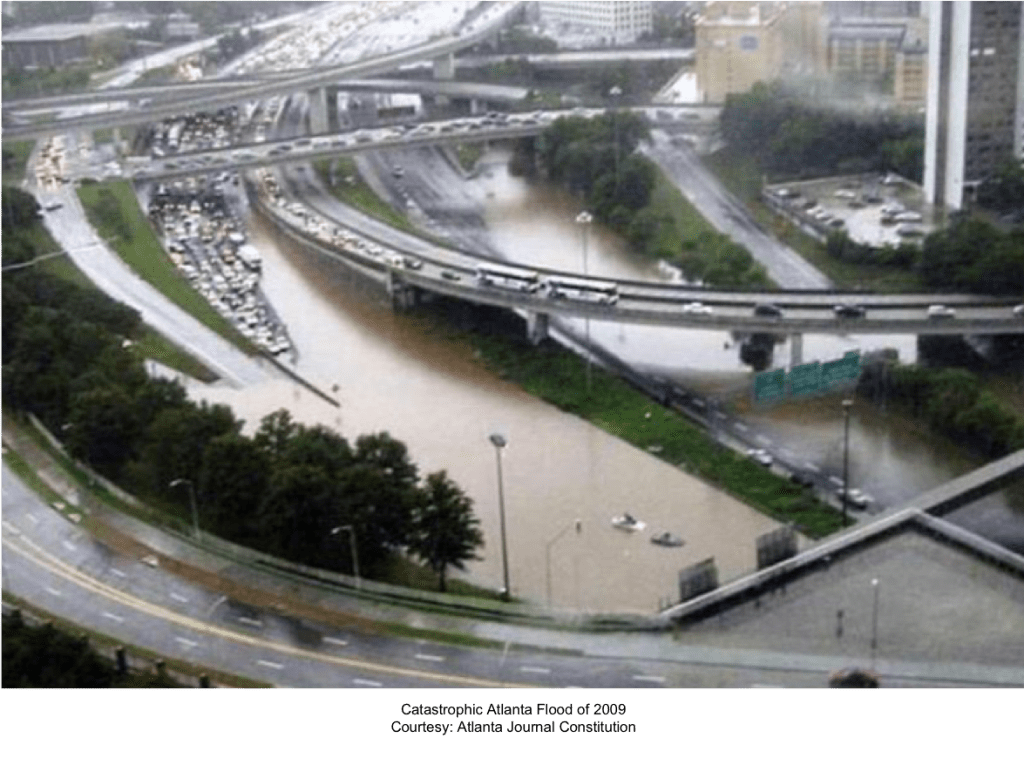
Georgia Tech is one of five universities selected to participate in the 2020 AT&T Climate Resiliency Community Challenge. Georgia Tech’s Research Team partnered with Atlanta Regional Commission, Metropolitan North Georgia Water Planning District, the City of Atlanta Department of Watershed Management, Georgia Tech’s Smart Cities and Inclusive Innovation Initiative, and, the Center for Serve-Learn-Sustain at Georgia Tech.
The team assessed the impacts of inland flooding (riverine and localized) on Georgia’s communities using climate risk data commissioned by AT&T and developed by Argonne National Laboratory, and applying an I-SETS conceptual and analytical framework, based on the SETS (Social-Environmental-Technical-Systems) framework developed by the Urban Resilience to Extremes (UREx) Sustainability Research Network and formally extended to incorporate institutions. I-SETS was applied to charaterize exposure and vulnerablity to inland flooding risks in the state of Georgia, and in the cities of Atlanta, Albany, Austell and Carollton and make recommendations to support a range of public agencies and civic entities with the capacity to develop resilience in Georgia’s communities.
Research Team:
PI: Adjo Amekudzi-Kennedy, Ph.D. | Co-PIs: Russell Clark, Ph.D., Brian Woodall, Ph.D., Baabak Ashuri, Ph.D., | Graduate Researchers: Prerna Singh, Jennifer Krieger; Undergraduate Researchers: Ty Parrillo, Derek Rizzi, Mandani Tennakoon, Ashlee Bryant
Keywords:
Inland flood, risks, climate change, resilience
Project Report:
Amekudzi-Kennedy, A., Clark, R., Ashuri, B., Woodall, B., Singh, P., Parrillo, T., Rizzi, D., and M. Tennakoon. Inland Flood Risk and Municipal/Regional Resilience in Georgia: Data, Methodology, Case Studies & Recommendations. AT&T Resiliency Community Challenge, 12/31/2020. | Access at: AT&T CLIMATE RESILIENCY COMMUNITY CHALLENGE 2020.
News:
https://ce.gatech.edu/news/cee-researchers-study-inland-flood-risks-att
https://about.att.com/newsroom/2019/climate_resiliency_community_challenge.html
AT&T Provides Climate Data that Helps At-Risk Neighborhoods Prepare for Extreme Weather Events
